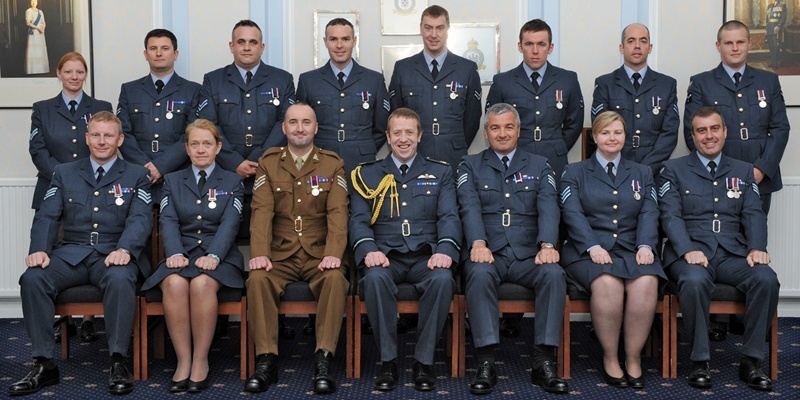Servicemen from RAF Leuchars have been recognised for the “crucial” role they played in supporting the battle against Taliban forces in Afghanistan.
A total of five Operational Service Medals (OSM) were presented during a ceremony at the Fife base.
The OSM was introduced in January 2000, and since then three have been issued for service in Sierra Leone, Afghanistan and the Democratic Republic of Congo.
Complex criteria govern the award of the medal, with varying lengths of service required depending on the operation and location.
During the Leuchars ceremony the medals were presented by Air Officer Scotland, Air Commodore Harry Atkinson.
The acting station commander at RAF Leuchars, Wing Commander Nick Stringer, said it was a proud moment for all of those involved.
“All of the recipients have made a valuable contribution to helping RAF Leuchars achieve its priorities including the delivery of our primary Quick Reaction Alert mission, supporting other military operations and growing the Typhoon force,” he said.
“The recipients of the OSM have been supporting NATO air power in Afghanistan, a crucial military advantage that the International Security Assistance Force and Afghan National Security Forces have over the Taliban.”
Despite facing the axe as the Westminster government implements its £38 billion Strategic Defence and Security Review (SDSR), pilots from RAF Leuchars have more recently been involved in operations in Libya where they are helping implement the NATO no-fly zone that is intended to protect the Libyan people from the brutality.
Meanwhile, more than 150 air personnel from RAF Leuchars are among a 300-strong contingent from 6 Force Protection Wing on an operational tour in Afghanistan. They are part of a six-month tour charged with defending Camp Bastion.
Making up the majority of the Leuchars deployment is a sub-unit of the wing 58 Squadron RAF Regiment.
Working alongside the US Marine Corps, the field squadron is helping enable the delivery of air power in Afghanistan, by defending the UK’s logistical hub in Helmand Province from attack and protecting aircraft taking off and landing.
As well as operating in extreme temperatures, the gunners face a constant threat from mines, improvised explosive devices and unexploded ordnance left over from the Soviet occupation.
